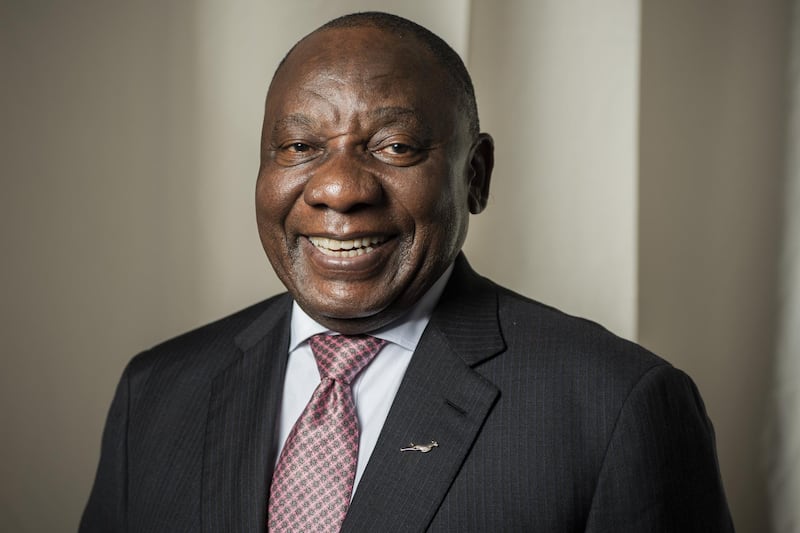Cape Town//Political infighting within South Africa’s government has paralysed economic reforms and could result in the ignominy of junk status within just three months.
Last week, ratings agency Moody’s changed its outlook on South Africa’s sovereign rating to negative from stable, citing a lack of “political will” to reform the economy. Although South Africa retained its Baa1 sovereign rating, meaning its debt is still considered investment grade, the agency warned that if reforms were not visible by the time the next budget is announced in February, a downgrade could follow, sending its bonds into junk territory.
Moody’s is the only one of the three major global ratings agencies to maintain an investment grade rating on South Africa’s sovereign debt, but the agency is sending out similar warnings as the many economists and analysts who have grown frustrated at the lack of urgently-needed financial and policy reforms.
“The current leadership has no choice but to take tough decisions,” says Thabi Leoka, senior economist at Argon Asset Management in Cape Town. “The focus should be what’s in the best interest of the country, and not what’s in the best interest of a political party.”
A cut to junk status would mean the country loses its place in the FTSE World Government Bond Index. This would send investors rushing to the door, removing as much as $15 billion (Dh55.1bn) from the local bond market, according to a research report by the Bank of New York Mellon.
Right now, government borrowing is at around 3 trillion South African rand (Dh742bn), which is more than 60 per cent of GDP. A ratings cut will inflate the cost of borrowing, and risk pushing the country into the not-so-gentle embrace of the lender of last resort, the International Monetary Fund.
In a sense, Moody’s has given South Africa a final warning but also a “lifeline” of some extra time to getting its affairs in order, says Lavan Gopaul, director of investment firm Merchant Afrika in Johannesburg.
“It gives us the ability to get our affairs in order. I hope we are able to bounce from here – this is a second chance.”
Indeed, the relief at Moody’s granting a stay of execution was manifested in the rand, which rose sharply by 1.5 per cent on Monday.
Among the urgent issues Moody’s noted, was the poor financial state of the national electricity company, Eskom, which will need an eye watering 59 billion rand bailout this year. Eskom needs either to be either sold off or drastically restructured, Mr Gopaul said. “We cannot continue to keep using taxpayers’ money and throwing it at state-owned enterprises.”
The government has drawn up plans to break up Eskom, which provides more than 90 per cent of the country’s electricity, into at least three independent units.
Finance minister Tito Mboweni has also circulated a paper in which he argues for Eskom to be sold off entirely. However, fierce opposition from within the ruling African National Congress, as well as the all-powerful unions, will make restructuring an uphill battle.
In late October Eskom board member Busisiwe Mavuso told a parliamentary committee hearing that attempts by the utility to instil reforms were blocked by government officials.
“There are decisions that we know we have to be making as this board, but the shareholder quickly comes in and says that you can't do that because it is politically inconvenient," she said.
Mr Ramaphosa, it seems, is not entirely captain of his own ship. He can count on the backing of both Mr Mboweni and Mr Pravin Gordhan, the minister of public enterprises whose portfolio includes Eskom. Both men have expressed the need for market-related reforms. However, Mr Ramaphosa is vehemently opposed by factions still loyal to previous president Jacob Zuma.
The nine years of Mr Zuma’s presidency were characterised by widespread graft, and many of his backers profited handsomely during his tenure. Structural changes threaten their pipeline of income as patronage networks are shut down. It will therefore be extremely difficult for Mr Ramaphosa to get the full, unequivocal backing of reforms from his party.
Perhaps to dispel misgivings around the commitment to cleaning up state entities, Mr Ramaphosa and senior officials have embarked on a series of public interviews and meetings to allay investor concerns.
Mr Gordhan for instance said this week that critics of reform must accept that the fiscal crisis brought about from years of mismanagement needed to be addressed.
“The country must get used to the idea of not just poking holes in what we have on the table,” he said, speaking on the state broadcaster SABC. He accused officials at institutions such as Eskom of lacking a sense of urgency, and simply waiting for the state to plug funding gaps.
“This dependency mindset, that I can demand whatever I like, that I can spend whatever I like, is a dependency mindset that we really have to get rid of.”







